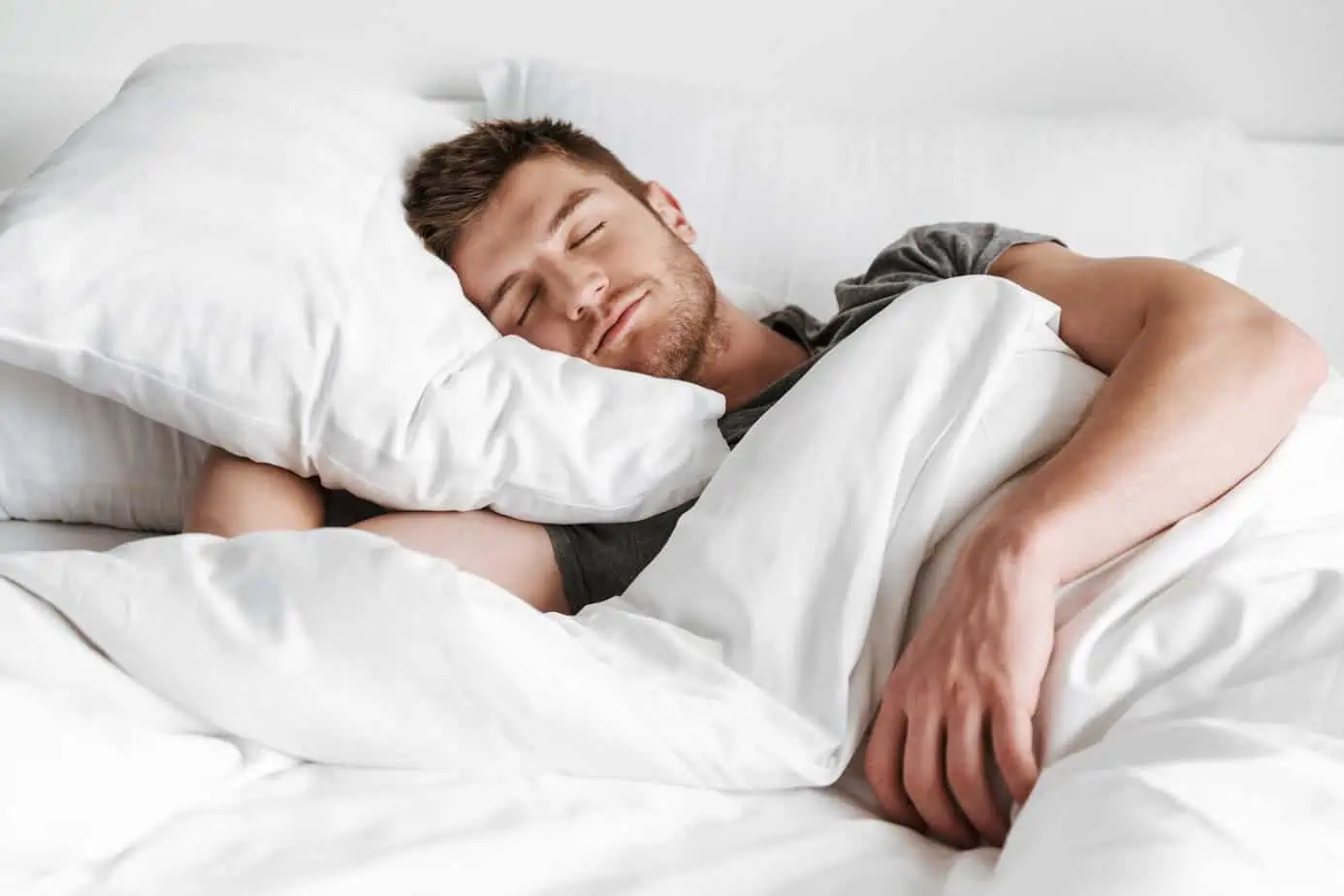Sleep is as essential to normal body function as eating food, drinking water, and breathing. Bedtime, according to experts, is the most important part of the day. Considering that nearly a third of our day is spent asleep, getting enough rest is vital to maintaining good health. Interrupting your sleep patterns and skimping on shut-eye can have devastating health consequences to all body systems and to recovery from substance abuse.
Why Is Sleep Important for Your Health?
Sleep is crucial for proper physical and mental development from birth to adulthood, and inadequate rest can significantly increase the risk of developing chronic illness later in life. After all, how you feel while awake depends, in large part, on how you slept. How does improper sleep worsen your health?
- Heart health: during normal REM sleep, blood pressure and heart rate increase and decrease as the parasympathetic nervous system activates. Disrupting this important cycle increases the risk of heart disease, heart attack, stroke, hypertension, and obesity.
- Digestive health: your circadian rhythm, or ‘body clock,’ determines how and when your body digests different molecules, like fats and carbohydrates from foods. Eating at abnormal times can impair how you metabolize these substances, and can lead to erratic blood sugar levels, overeating, and obesity.
- Brain health: sleeping allows your brain to absorb and process information retrieved throughout the course of the day and is the primary time for long-term memory formation. Disrupting normal sleep leads to difficulty focusing, poor memory and emotional regulation, and cognitive impairment.
- Cellular health: you heal most while asleep, as rest is the time when the body maximizes protein and growth hormone production, allowing for tissue repair and cellular regeneration, both of which reduce the damaging effects of sun exposure, drug or alcohol use, and injury or inflammation. Sleep also helps restore the immune system by promoting production of key disease-fighting components, like white blood cells and cytokines, repairing defense mechanisms that can be weakened by substance abuse and stress.
- Skin health: nighttime is also when cells produce collagen, the protein that gives skin structure and elasticity. Getting enough sleep can reduce the appearance of wrinkles and fine lines, restoring and preserving your youthful glow. Additionally, rest tightens the blood vessels beneath your eyes, eliminating pesky dark circles and bags.
What Does Sleep Deficiency Look Like?
The consequences of not getting enough sleep are debilitating. Yet, more than a third of Americans admit to under-sleeping, and nearly 40 percent of adults report accidentally falling asleep more than once a month from fatigue. 96 percent of alcohol and drug users suffer from some kind of sleep impairment, with another 56 percent of users experiencing moderate-to-severe insomnia. Sleep deficiency, however, doesn’t look the same for everyone:
- Not sleeping enough – going to bed later, or getting up earlier in the morning, are the most common examples of sleep deficiency.
- Sleeping at the wrong time of day – resting when you would otherwise be awake is harmful to your health as well.
- Not getting the different kinds of sleep necessary – completing 3 to 5 REM cycles, or achieving ‘deep sleep,’ per night is essential to good health.
- Sleep disorders – insomnia, which is a sleep disorder that makes It difficult to fall asleep, can hamper your ability to rest enough.
The recommended amount of sleep varies by age, but most experts agree that teens require 8 to 10 hours of sleep per night, and that adults require 7 to 9 hours per night.
How Does Drug Abuse Worsen Your Sleep?
Substance abuse can make significant changes to your sleep patterns and rest cycle. More than a third of active drug users reported getting less than 7 hours of sleep per night. Different classes of drugs interrupt sleep in different ways:
- Stimulants, like cocaine, amphetamines, and methamphetamine, or certain hallucinogens such as MDMA, interfere with the natural sleep-wake cycle, or circadian rhythm. Stimulant abuse disrupts the body’s ability to regulate sleep patterns, and can lead to insomnia, fragmented or disrupted sleep, and sleep latency (time it takes to fall asleep).
- Depressants, like alcohol, benzodiazepines, and barbiturates, disrupt sleep architecture. Depressant misuse reduces the amount of REM sleep and deep sleep obtained during the night, which are crucial for maintaining good health and feeling well-rested. This class of drugs can also depress the central nervous system, impairing respiratory function and causing sleep apnea, a disorder in which breathing repeatedly stops and starts.
- Opioids, such as heroin, fentanyl, oxycodone, and codeine, also depress the central nervous system and can slow breathing, leading to shallow or interrupted breathing during sleep and hypoxia, a dangerous lack of oxygen. Like depressants, sleep apnea is common in those who abuse narcotics.
- Marijuana is used by some people to induce sleep, but a number of users actually struggle to fall asleep due to altered perceptions and anxiety. Repeated abuse of marijuana also suppresses the REM cycle, reducing sleep quality and increasing daytime fatigue.
- Hallucinogens, like LSD or psilocybin mushrooms, and dissociative drugs, such as ketamine, can induce vivid nightmares or sleep paralysis that disrupt normal sleep patterns and make maintaining regular cycles difficult.
- Prescription medications, like antidepressants, antipsychotics, or steroids, often impact the ability to sleep, especially when not used as recommended or in combination with other substances. Common sleep issues include insomnia, difficulty falling and staying asleep, and disruptions to the normal sleep cycle.
Generally, substance abuse interrupts all stages of sleep, from falling asleep to dreaming, and can make getting enough rest nearly impossible. Because prolonged drug abuse severely impairs sleep, one of the most recognizable signs of addiction is excessive drowsiness and sleeping during the day. Poor sleep hygiene is also one of the leading risk factors for developing addiction, as over 75 percent of drug users report taking substances to combat sleep issues.
Why Is Sleep in Recovery So Important?
It comes as no surprise that a healthy sleep cycle is critical to long-term recovery from substance abuse, and goes to show why sleep education is such a fundamental part of addiction treatment. Mountainside’s outcomes research shows that over 20 percent of our clients experienced improvement in sleep after completing residential treatment. Sleeping enough improves your health, and helps your body undergo restorative healing processes, which can undo damage done by drug abuse. While the health benefits of sleep are significant, the most important function of sleep in recovery is to reduce cravings and prevent relapse.
Studies have linked better sleep to fewer cravings, finding that cravings for drugs and alcohol increased on days when sleep quality was worse. The correlation is particularly strong in cocaine abuse – over 75 percent of recovering users found that their cravings for the drug increased after a poor night of sleep.
Research suggests that sleep impairment and untreated sleep disorders are amongst the leading causes of relapse for those in recovery. Nearly 60 percent of recovering alcoholics with untreated insomnia relapse within five months of residential addiction treatment. Similarly, 65 percent of marijuana users attempting to quit use cited poor sleep quality as a determining factor in their relapse. Generally, sleep disturbance as a predictor of relapse is a pattern observed across all classes of drugs, from hallucinogens to alcohol. This is because poor sleep exacerbates symptoms of anxiety and depression, mental health disorders that commonly occur with substance abuse, which are two common triggers in recovery. When recovering addicts turn to substances to self-medicate due to poor sleep and its consequences, they relapse. Developing coping habits, like healthy sleep habits that can mitigate common triggers, helps to fight the urge to use again.
Tips for Improving Sleep and Reducing the Risk of Relapse
Good sleep hygiene is the key to a successful recovery. Here are some tips and tricks for how to get your sleep back on track:
Set a consistent sleep schedule
Choose a regular bedtime and wake-up time and stick to them daily, even on weekends. Being consistent with your sleep regulates your circadian rhythm, easing the process of falling asleep and waking up naturally.
Keep a sleep diary
Take note of when you fall asleep and wake up, as well as your activities in between. This can help you identify what is preventing you from getting the rest you need.
Create a routine
Develop a pre-sleep routine to signal your body that it’s time for bed. Some examples of calming activities include reading, meditating, taking a warm bath or shower, dimming the lights, and listening to soothing music.
Limit stimulating substances
Stop caffeine and nicotine consumption a few hours before bed, as these stimulants can interfere with falling asleep and will keep you awake.
Avoid nocturnal eating
Consuming large meals right before bed can also disrupt sleep. Plan to finish your meal two to three hours before settling in for the night.
Limit screen time
The blue light emitted by screens interrupts the production of the sleep hormone melatonin, which helps make us feel drowsy and fall asleep. Power down all screens, like phones, tablets, TVs, and computers, an hour before bed.
Be productive during the day
What you do during the day can have a large impact on what you experience at night. Make sure to exercise regularly and avoid napping to optimize your sleep quality.
Turn your room into an oasis
Feeling relaxed in your own space can help you sleep better. Declutter your room, set a comfortable temperature, and invest in black-out curtains. Having soothing, light wall colors can also help you feel at ease.
Sleep is one of the body’s most essential functions, and drug abuse fundamentally interrupts the process of resting. Prioritizing sleep hygiene in recovery is crucial to achieving and maintaining sobriety.
If you or a loved one is struggling with addiction, Mountainside can help.
Click here or call (888) 833-4676 to speak with one of our addiction treatment experts.

 By
By 





